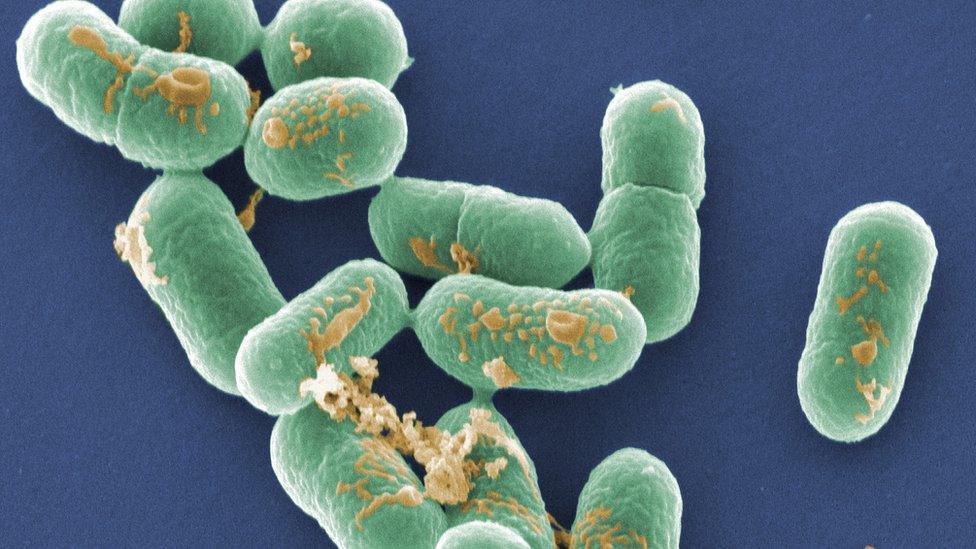Listeria warning over ready-to-eat smoked fish
- Published

Ready-to-eat smoked fish, such as smoked salmon, is too risky for some people to consume because of a rare chance of getting listeria food poisoning, UK food safety experts say.
While most people would not become seriously ill, certain susceptible groups, including the over-65s, could.
Pregnant women and people with weak immune systems are also vulnerable.
Cooking the fish until it is steaming hot should kill any dangerous bacteria, making it safe for anyone to eat.
There have been eight recorded listeriosis cases so far this year in an ongoing outbreak in the UK, says the Food Standards Agency (FSA).
One earlier case was a pregnant woman.
Listeriosis in pregnancy can cause miscarriages and severe sepsis (blood poisoning) or meningitis in newborn babies, experts warn.
People over 65 and those with certain underlying medical conditions such as cancer, chronic liver or kidney disease, or who are taking medications which can weaken the immune system, might also develop meningitis and life-threatening sepsis if exposed to the bacterium that cause listeriosis.
As a precaution, these groups are being advised to avoid eating uncooked smoked fish.
Listeria bacteria are commonly found in the environment - in soil, for example - and can contaminate and grow on food, even if it is chilled in the fridge.
Smoked fish, pate, cured meats and some soft cheeses such as camembert and brie have been linked with listeriosis.
A joint FSA investigation with the UK Health Security Agency (UKHSA) has identified 14 linked cases of listeriosis since 2020, with eight of these since January 2022. Cases have been identified in England and Scotland. The majority of these individuals reported eating ready-to-eat smoked fish.

Listeria bacteria
Dr Caroline Handford, acting head of incidents at the FSA, said: "People can also further reduce the risk by keeping chilled ready-to-eat smoked fish cold (5C or below), always using products by their use-by date, following the storage instructions on the label, and cooking it until it is piping hot right through."
Prof Saheer Gharbia, from the UKHSA, said: "Most people won't have any symptoms of the infection or will only experience mild symptoms such as abdominal pain or diarrhoea, which usually pass within a few days without the need for treatment.
"However, some people are at higher risk of much more serious illness.
"If you have any concerns about your health please speak to your midwife, GP or hospital specialist team."
To reduce your risk when preparing food at home:
wash your hands regularly with soap and water
wash fruit and vegetables before eating them
store ready-to-eat foods as recommended by the manufacturer
keep raw and ready-to-eat foods separate to avoid cross-contamination
always use foods by their use-by date
do not eat, cook or freeze your food after the use-by date
If you develop a listeria infection, you might have:
fever
chills
muscle aches
nausea
diarrhoea
- Published5 February 2020
